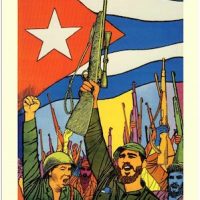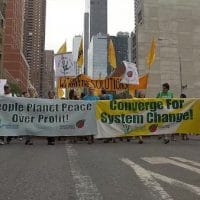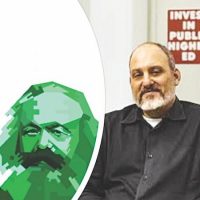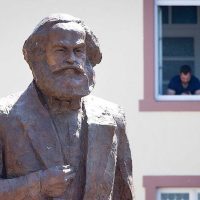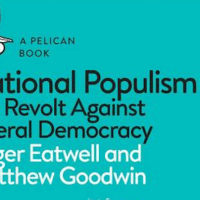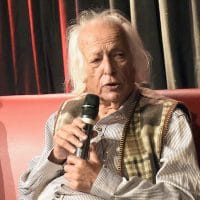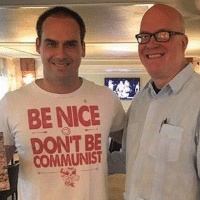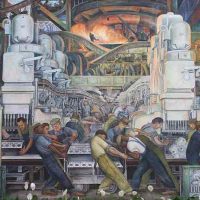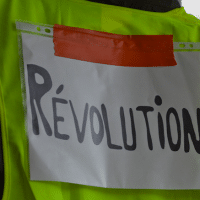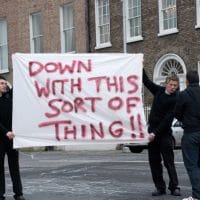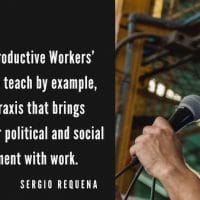-
We are sorry for the inconvenience, but this is a revolution
On January 1 in India, 5.5 million women formed a 620-kilometer wall across the length of the state of Kerala to fight for women’s rights to the Sabrimala temple. On the same day, Cuba celebrated 60 years since the 1959 revolution, which has been a persistent thorn in the side of global capital ever since.
-
Brazil’s road to neo-fascism
Pedro Rocha de Oliveira considers the context of Jair Bolsonaro’s rise to power in Brazil.
-
The art of the revolution will be internationalist
The ideological battle must be fought not only with words but also with the production of images and visuals that propel the work of movements forward.
-
Ghosts of Christmas present
Act Five for the popular Yellow Vest revolt against poverty in France came on 15 December–but it was not the finale. The movement remains vibrant and determined, especially in big southern towns such as Toulouse and Bordeaux.
-
When “green” doesn’t “grow”
The onslaught of extreme weather and the increasingly stark scientific assessment leave no doubt that we face an ecological and civilizational emergency. But in the year since COP23 in Bonn, Germany, a constant stream of headlines and reports have confirmed that governments are not on track to meet their climate commitments.
-
Living amidst the catastrophes of “the Living Contradiction”
“By its nature,” Marx writes in the climactic passage of a magnificent but very dense section of the Grundrisse, capital “posits a barrier to labor and value-creation in contradiction to its tendency to expand them boundlessly. And in as much as it both posits a barrier specific to itself, and on the other side equally drives over and beyond every barrier, it is the living contradiction.”
-
Millennials: hit hard and fighting back
A lot has been written and said critical of millennials. The business press has been tough on their spending habits.
-
The political roots of falling wage growth
It’s now official: workers around the world are falling behind. The International Labor Organization’s (ILO) latest Global Wage Report finds that, excluding China, real (inflation-adjusted) wages grew at an annual rate of just 1.1% in 2017, down from 1.8% in 2016. That is the slowest pace since 2008.
-
Marx for me (and hopefully for others too)
Yesterday I had a conversation about my work, about how and why I started studying inequality more than 30 years ago, what was my motivation, how it was to work on income inequality in an officially classless (and non-democratic) society, did the World Bank care about inequality etc.
-
Liberals, the populist right & the politics of imperialism
How to respond to the rise of national populism? The phenomenon is evident not only in Trump’s U.S. but throughout Europe, as shown in this book’s comprehensive review of changes in mass opinion. The book also attempts to provide a solution to the problem, one that will defend democracy, but in doing so it inadvertently highlights the bankruptcy of the liberal outlook.
-
Mahmood Mamdani on Marxist intellectual Samir Amin
Samir Amin’s life resembled that of Karl Marx: a man without a homeland, but one whose home was a chosen commitment to a historical project.
-
Exploitation, Marxism, and Labour Law (Part Two)
The first model is a radical critique of all forms of bourgeois right, including employment rights, which are considered to constitute an ideological reflection of the capitalist mode of production, and therefore an inseparable companion of exploitation.
-
Scope and militancy of teachers’ strike shakes the ruling class
Lithuania is being shaken by an unprecedented teachers strike, which has now entered its fourth week and is causing severe anxiety, distress and panic among the ruling class and its political representatives. Already, Prime Minister Saulius Skvernelis has been forced to sack not only the hated Education Minister, Petrauskienė, but also two other Ministers: for Culture, and the Environment.
-
“In Hungary, there is no way forward but strikes”
Guzslován Gábor of the Federation of Metal Workers Union of Hungary talks about the impact of the ‘slave law’ passed by the far-right government of Viktor Orbán and the massive protests against it.
-
Bolsonaro against Cuba
Bolsonaro has his eyes on Washington and the Trump administration, which is looking to the Jair-Eduardo pair, father and son, to facilitate its attacks on Cuba and Venezuela.
-
Social democracy or barbarism? Barbarism, please
Political commentators see AMLO as a bigger threat than Bolsonaro.
-
Exploitation, Marxism, and Labour Law (Part One)
On trial with other members of the Rhenish District Committee of Democrats in 1849, Karl Marx argued in a Cologne court that their prosecution was based upon “laws which the Crown itself has trampled into the dirt”.
-
Yellow vest movement is not just about fuel tax hike, it is a crystallization of a deep social discontent and distress
Since November 17, France has been witnessing the massive Gilets jaunes or ‘Yellow Vests’ protests against the anti-working class policies of the Emmanuel Macron government. The protests against the rising economic burden on the people are also spreading to many other European countries.
-
Down with neoliberalism . . . as a concept
I think the left should stop talking about ‘neoliberalism’, as I argue in a recent journal article published in Capital & Class.
-
Building ‘Patria’
In this interview with Venezuelanalysis, we talk to a central figure in a voluntary workers’ initiative to jumpstart industrial plants, both state‐owned and worker‐controlled.



